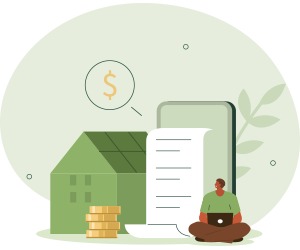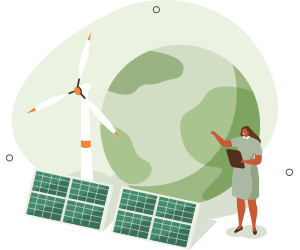4 Ways Energy Efficiency Can Improve Mental Health
In recent years, there has been an increasing awareness of the impact of energy use on mental health. Understanding the benefits of energy efficiency is crucial in this context, as it not only contributes to environmental sustainability but also significantly enhances mental health. Studies have shown that energy efficiency improvements can have significant mental health benefits, reducing stress and anxiety, improving mood, and increasing overall well-being.
One of the most significant ways in which energy efficiency can improve mental health is by reducing energy burdens. Energy burdens refer to the portion of a household's income that is spent on energy bills. High energy burdens are associated with increased stress, anxiety, and depression, as families struggle to pay their bills and maintain essential services such as heating and cooling. According to a report by ACEEE, low-income households are particularly vulnerable to high energy burdens, with energy bills accounting for up to 30% of their income.
Experiencing high energy burdens can lead to mental health issues, including chronic stress, anxiety, and depression. These issues can arise due to the fear and uncertainty surrounding access to energy, the challenges of navigating energy assistance programs, and the inability to control energy costs, as observed by Hernández, Phillip, and Siegel in 2016. Furthermore, Hernández's research in the same year showed that low-income individuals facing energy insecurity were anxious about losing their parental rights because they were struggling to maintain essential energy services such as the lighting in their homes.
The Mental Health Benefits of Energy Efficiency
The benefits of energy efficiency extend beyond mere energy savings; they encompass various aspects of mental health improvement, including:
 1. Reducing Stress and Anxiety
1. Reducing Stress and Anxiety
One of the primary benefits of energy efficiency is that it can help reduce stress and anxiety. High energy bills can be a source of stress and anxiety for many people, particularly those on a tight budget. Individuals can lower their energy bills and alleviate this financial pressure by reducing energy consumption. This can help reduce stress and anxiety levels and promote a sense of financial security and stability.
Additionally, energy efficiency can help reduce stress by improving the comfort of the living environment. For example, a well-insulated home can maintain a consistent temperature, reducing the need for frequent adjustments to heating or cooling systems. This can create a more comfortable living space and promote a sense of calm and relaxation.
2. Improving Sleep
Energy efficiency can also help improve sleep quality. Temperature regulation is important in achieving restful sleep, and energy-efficient homes are often better equipped to maintain a comfortable temperature throughout the night. This can help individuals get a better night's sleep and wake up feeling more rested and refreshed.
In addition, energy-efficient homes are often quieter, as they have better insulation and are less prone to drafts and other noises. This can create a more peaceful environment that promotes restful sleep and reduces the risk of sleep disturbances.
3. Boosting Mood and Productivity
This is one of the essential benefits of energy efficiency, where enhanced living conditions lead to improved mood and higher productivity. Energy efficiency can have a positive impact on mood and productivity. For example, poor energy efficiency can lead to uncomfortable living conditions, such as a cold or stuffy home, which can have a negative impact on mood and productivity. By contrast, energy-efficient homes are more comfortable and enjoyable to live in, promoting a positive mood and boosting productivity.
In addition, energy-efficient homes often have better air quality, as they are less prone to drafts and leaks that can let in pollutants and allergens. This can create a healthier living environment that promotes well-being and productivity. 4. Reducing Environmental Anxiety
4. Reducing Environmental Anxiety
Embarking on a journey to harness the benefits of energy efficiency is not just about environmental conservation; it’s also about enhancing your mental health and quality of life.
Energy efficiency can help reduce environmental anxiety. Many people are concerned about the impact of their daily activities on the environment, and high energy consumption can contribute to these concerns. By adopting energy-saving practices and technologies, individuals can reduce their carbon footprint and feel more confident in their ability to impact the environment positively.
Reducing environmental anxiety can also positively impact mental health, as it can help reduce feelings of helplessness and despair. By taking action to reduce energy consumption and carbon footprint, individuals can feel a greater sense of control over their impact on the environment and promote a more positive outlook on life.
Start Your Energy Savings Journey
Making your home more energy-efficient not only helps the environment but can also save you money on your energy bills. Here are five easy steps to make your home more energy-efficient: 1. Seal air leaks:
1. Seal air leaks:
Air leaks are a significant source of energy waste in homes, causing the heating and cooling system to work harder to maintain a consistent temperature. To prevent air leaks, check your windows and doors for drafts and seal them with weatherstripping or caulking. You can also use foam insulation to seal gaps around pipes, wires, and vents.
2. Switch to LED lighting:
Lighting is another significant energy user in homes. LED bulbs use up to 75% less energy and last up to 25 times longer than traditional incandescent bulbs. Switching to LED lighting is an easy and cost-effective way to save energy and money.
3. Adjust your thermostat:
Heating and cooling your home accounts for almost half of your energy bills. Lowering your thermostat by just a few degrees in the winter and raising it in the summer can significantly reduce your energy usage. A programmable thermostat can make this even easier by automatically adjusting the temperature based on your schedule.
4. Upgrade to energy-efficient appliances:
Appliances such as refrigerators, dishwashers, and washing machines consume a lot of energy. Upgrading to energy-efficient models can significantly reduce your energy bills. Look for appliances with the ENERGY STAR label, which indicates that they meet strict energy efficiency guidelines. 5. Manage energy usage with solar
5. Manage energy usage with solar
Solar energy is a remarkable example of the benefits of energy efficiency, providing a sustainable and efficient source of power.
Solar energy is renewable, which means that it is available continuously and does not produce harmful emissions like traditional fossil fuels. By installing solar panels, you can reduce your carbon footprint and contribute to a more sustainable future. By generating your own electricity from the sun, you can reduce your reliance on the grid and lower your energy bills. Solar can provide significant savings, making it a wise investment for homeowners.
As you explore the various ways to enhance energy efficiency, keep in mind that understanding the benefits of energy efficiency can lead to not only a reduced carbon footprint but also improved mental well-being.
Energy efficiency has a number of mental health benefits that can promote overall well-being and happiness. By reducing stress and anxiety, improving sleep quality, boosting mood and productivity, and reducing environmental anxiety, energy efficiency can help individuals lead happier, healthier lives.
If you're looking to improve your mental health, consider adopting energy-saving practices and technologies in your daily life. Not only will you be doing your part to protect the environment, but you'll also be promoting your own well-being in the process. As one of only a few companies that combine solar and energy savings audits, PosiGen can help you start your own energy savings journey.
